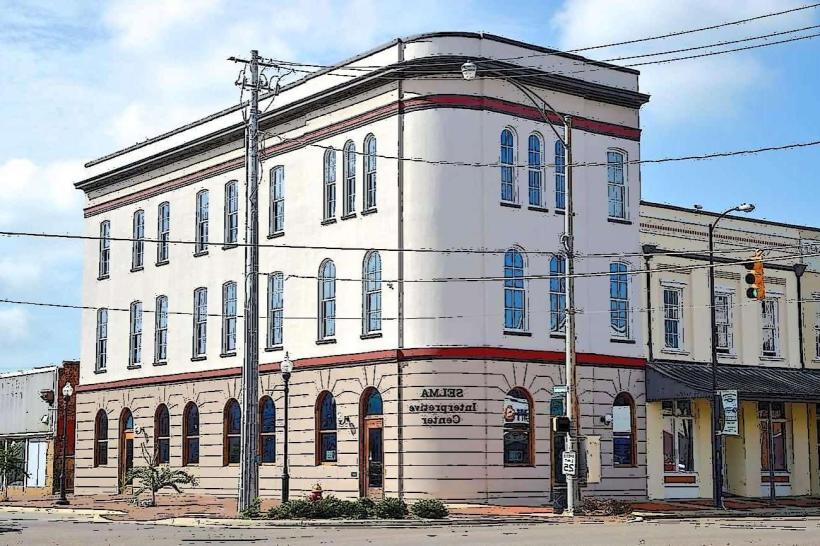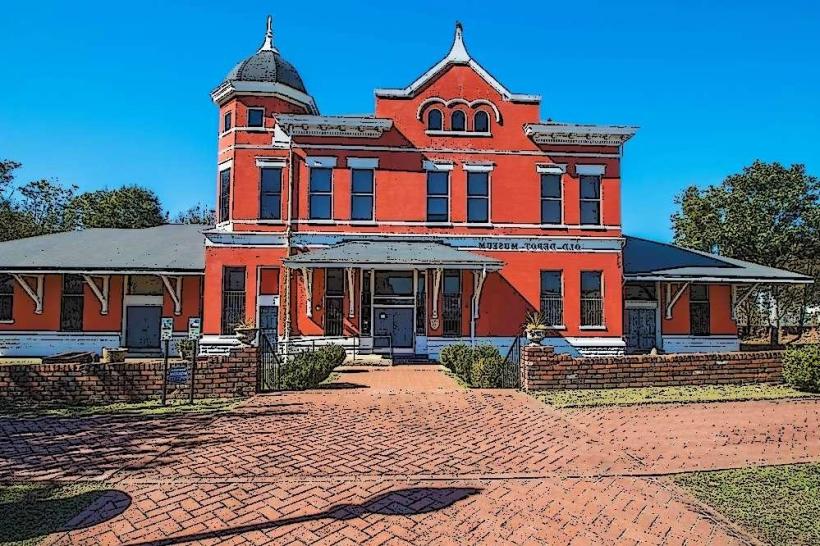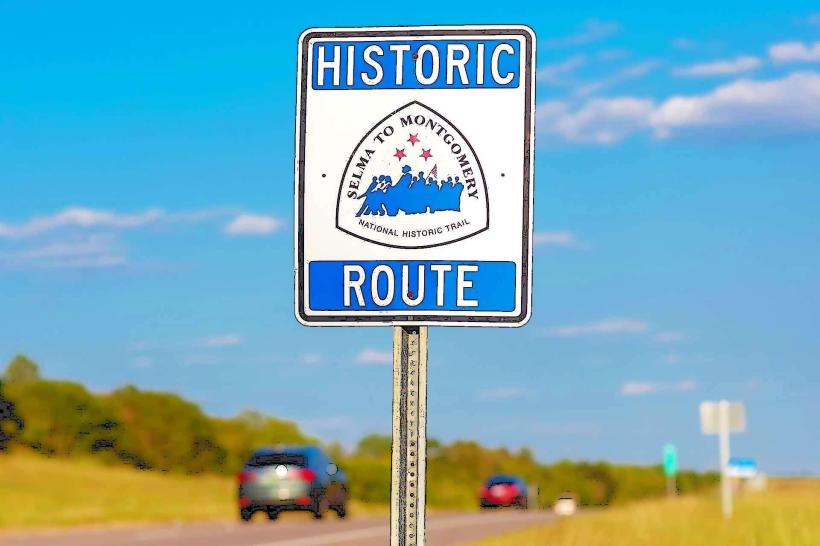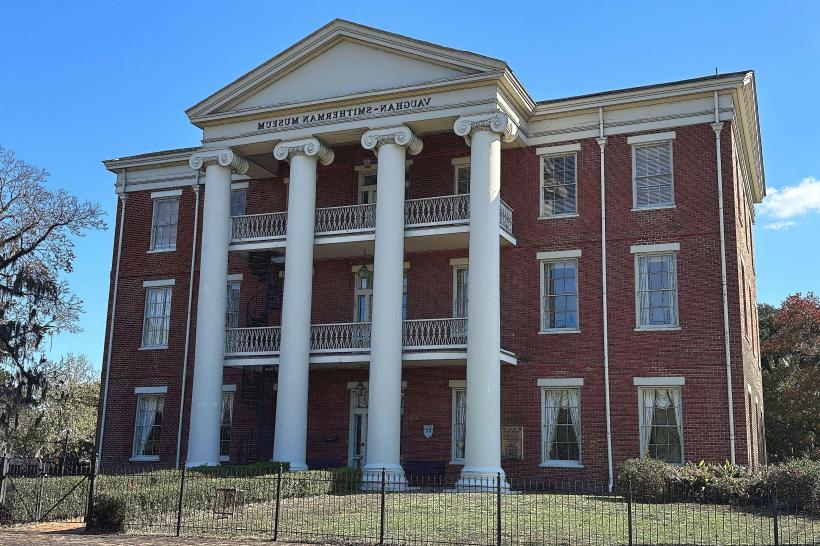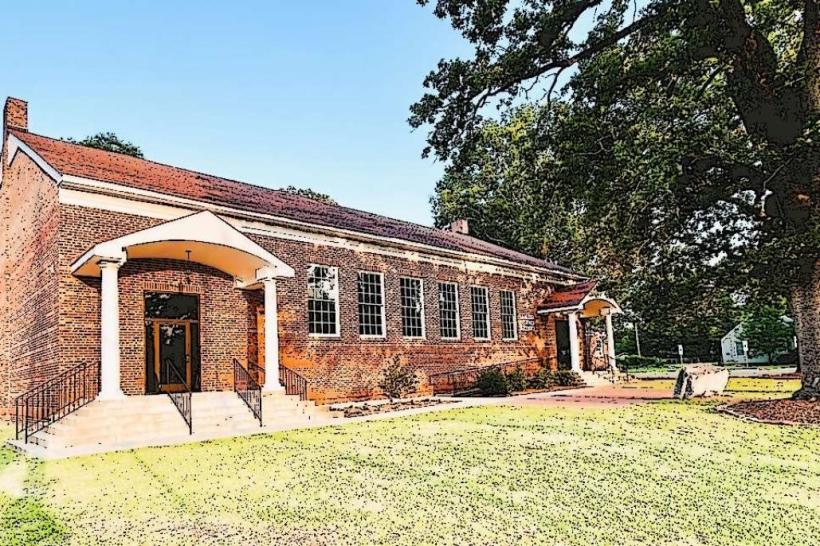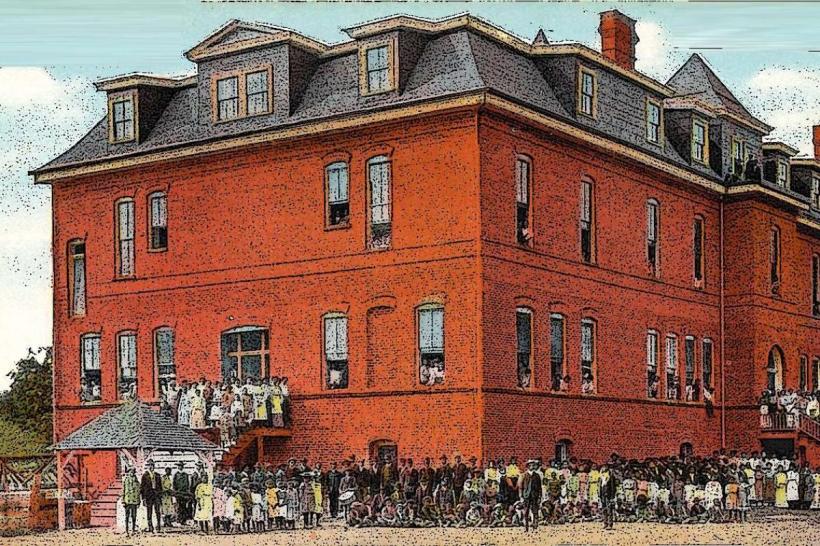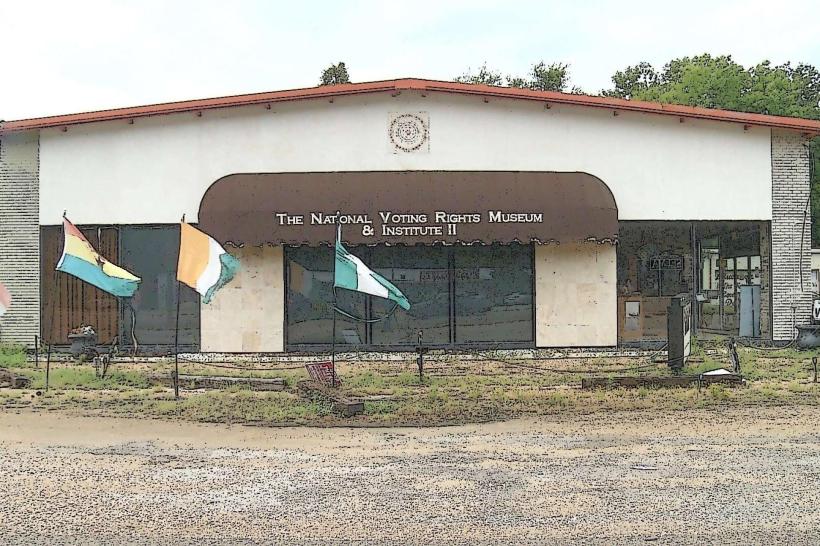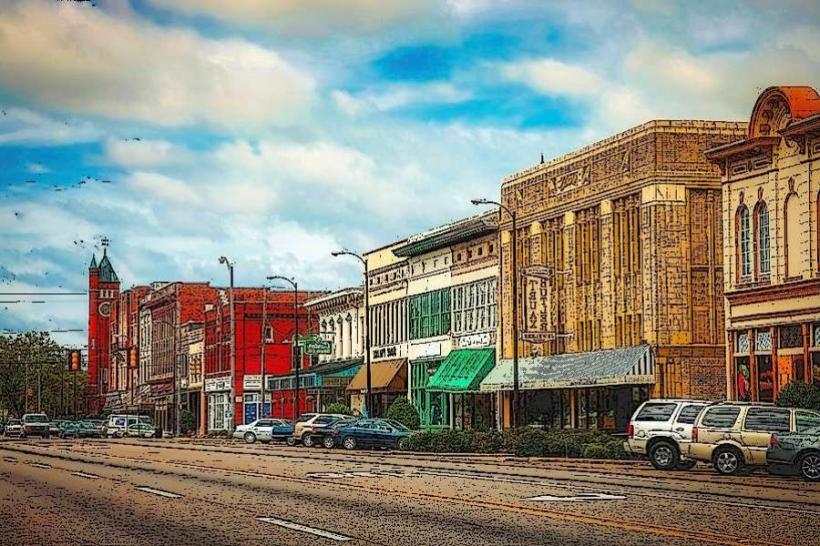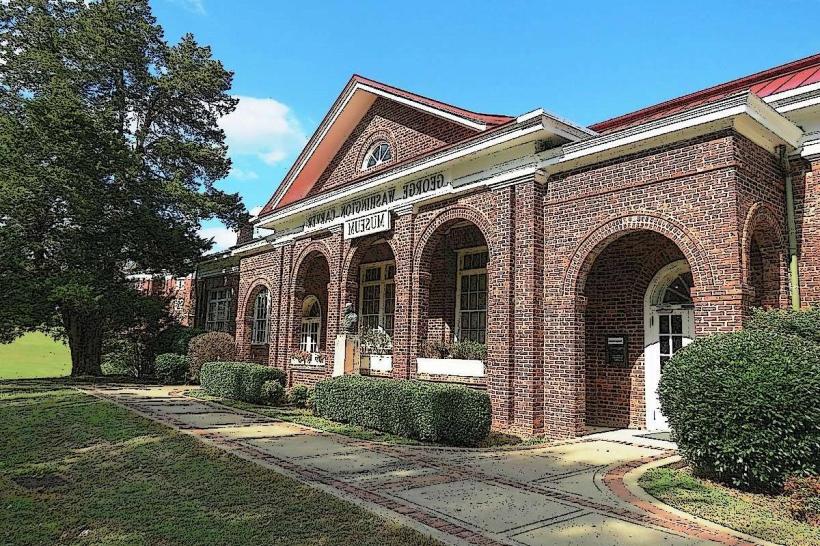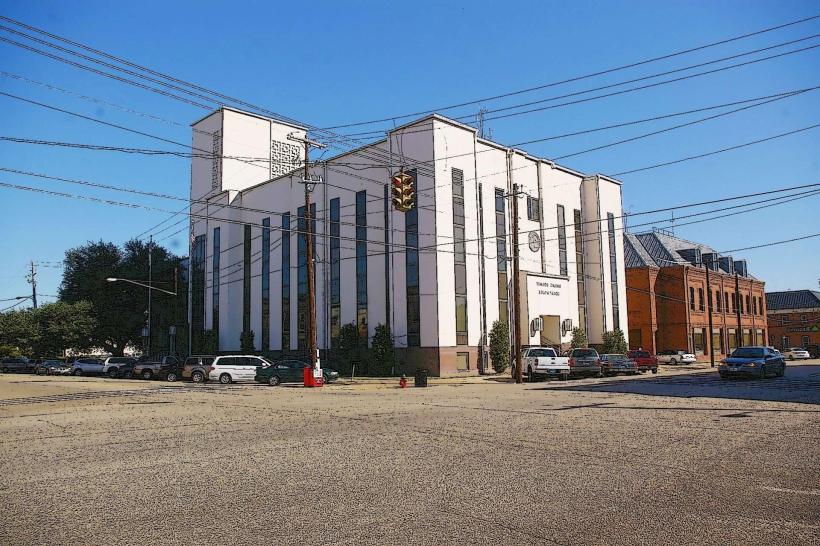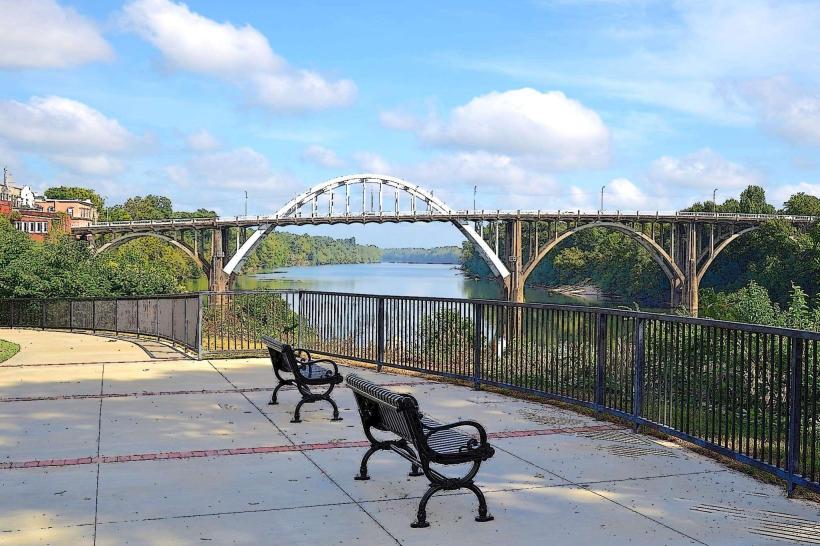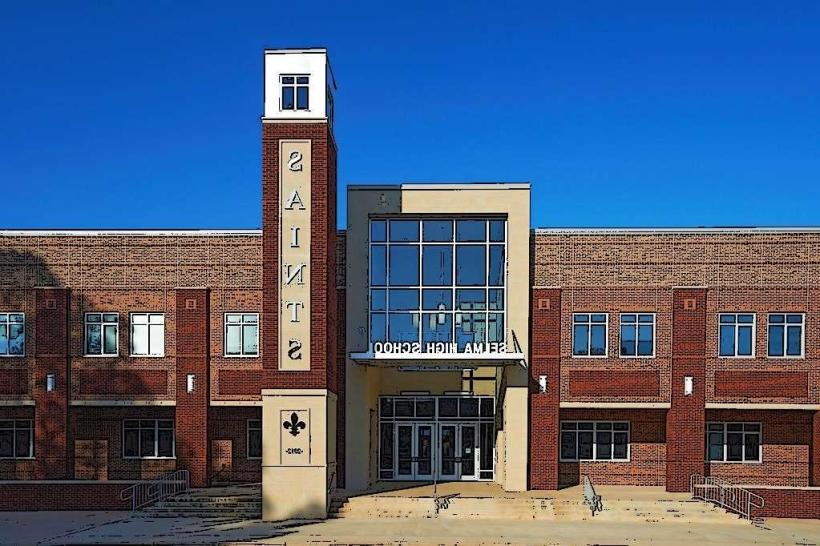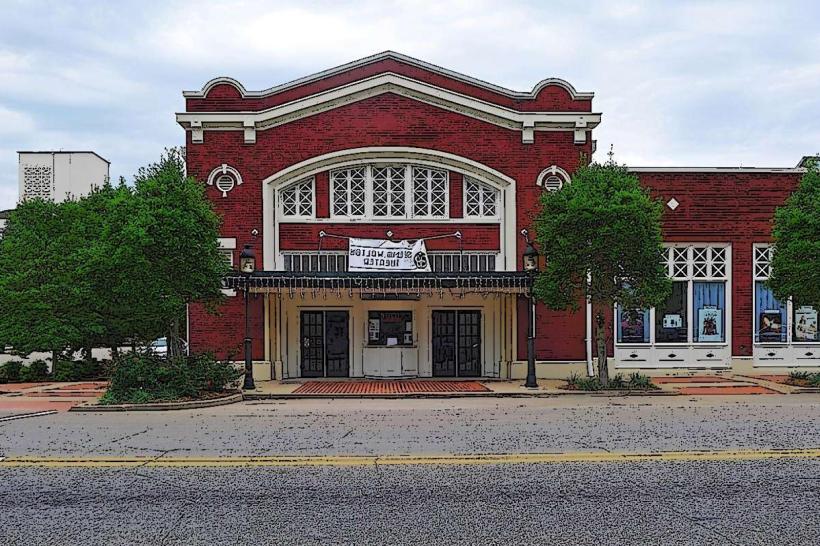Information
Landmark: Catfish Row Historic DistrictCity: Selma
Country: USA Alabama
Continent: North America
Catfish Row Historic District, Selma, USA Alabama, North America
Catfish Row Historic District is a designated area in Selma, Alabama, USA, preserving a collection of antebellum structures.
The district is situated along the Alabama River, historically serving as a commercial hub.
Visual Characteristics
Structures in Catfish Row are primarily brick and wood, exhibiting Federal and Greek Revival architectural styles. Buildings range from two to three stories in height. Many facades feature raised basements, common in flood-prone areas. Exterior colors vary, with many buildings painted in muted tones of white, cream, and pale yellow, accented by dark shutters and trim.
Location & Access Logistics
Catfish Row is located at the western edge of downtown Selma, adjacent to the Alabama River. It is approximately 0.5km west of the main commercial center, accessible via Water Avenue. Parking is available on Water Avenue and surrounding streets, with metered street parking being the primary option. Public transport options are limited; the nearest bus stops are located on Broad Street, approximately 1km east of the district.
Historical & Ecological Origin
Catfish Row developed in the early 19th century as Selma's primary port and commercial center. Its construction was driven by the river trade, particularly cotton. The area's ecological context is defined by its proximity to the Alabama River, a historically significant waterway for transportation and commerce in the region.
Key Highlights & Activities
Visitors can walk the length of Water Avenue to observe the architectural details of the historic buildings. Photography of the antebellum structures is a common activity. Interpretive signage provides historical context for specific buildings. Access to the riverfront is possible at the end of Water Avenue.
Infrastructure & Amenities
Restrooms are not consistently available within the immediate district; facilities are more common in nearby downtown Selma. Shade is limited, primarily provided by the overhangs of some buildings. Cell phone signal (4G/5G) is generally reliable throughout the district. Food vendors and restaurants are located in the adjacent downtown Selma area, within a 0.5km walk.
Best Time to Visit
For photography, the late afternoon (approximately 3 PM to 5 PM) offers favorable lighting conditions on the building facades. The months of April, May, September, and October generally provide the most comfortable weather, with average temperatures ranging from 18°C to 25°C. No specific tide requirements affect access.
Facts & Legends
During the Civil War, Selma was a major industrial center for the Confederacy, and Catfish Row played a role in supplying the Confederate army. A local anecdote suggests that the name "Catfish Row" originated from the abundance of catfish caught and sold along the riverfront in the district's early days.
Nearby Landmarks
- Edmund Pettus Bridge (0.8km East)
- Selma Interpretive Center (0.7km East)
- St. James Hotel (0.6km East)
- Dallas County Courthouse (1.0km Northeast)

